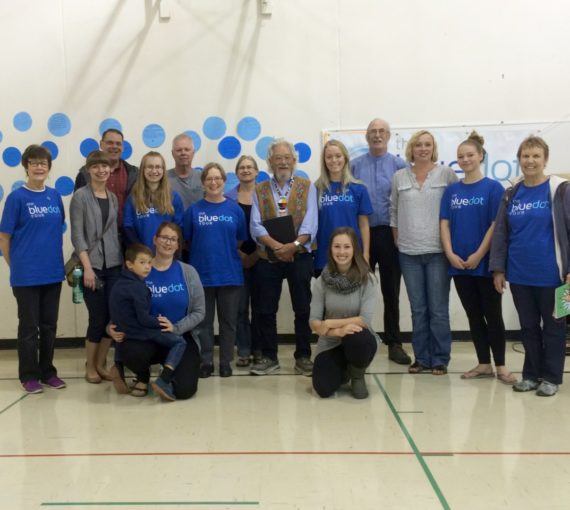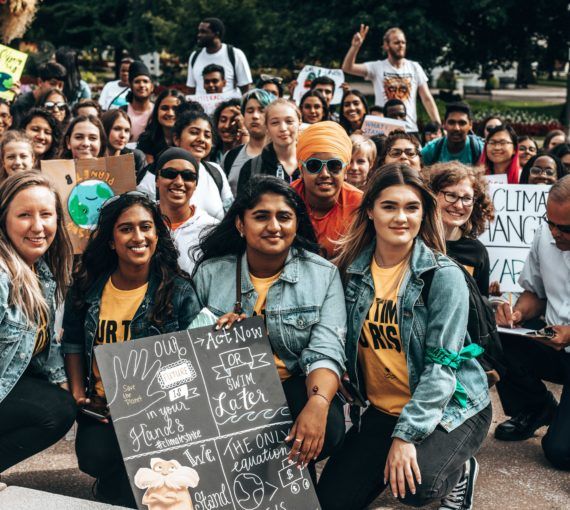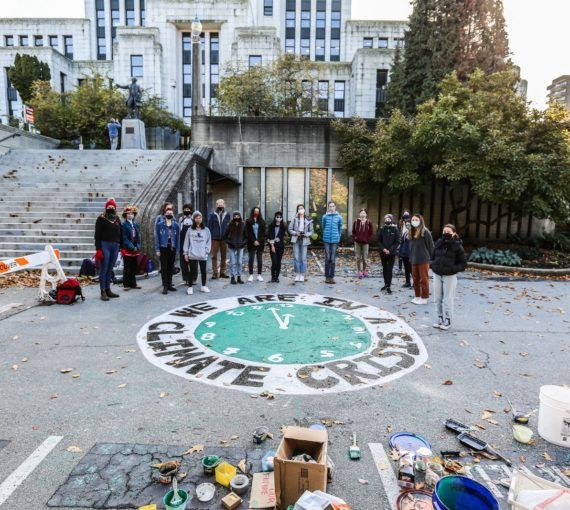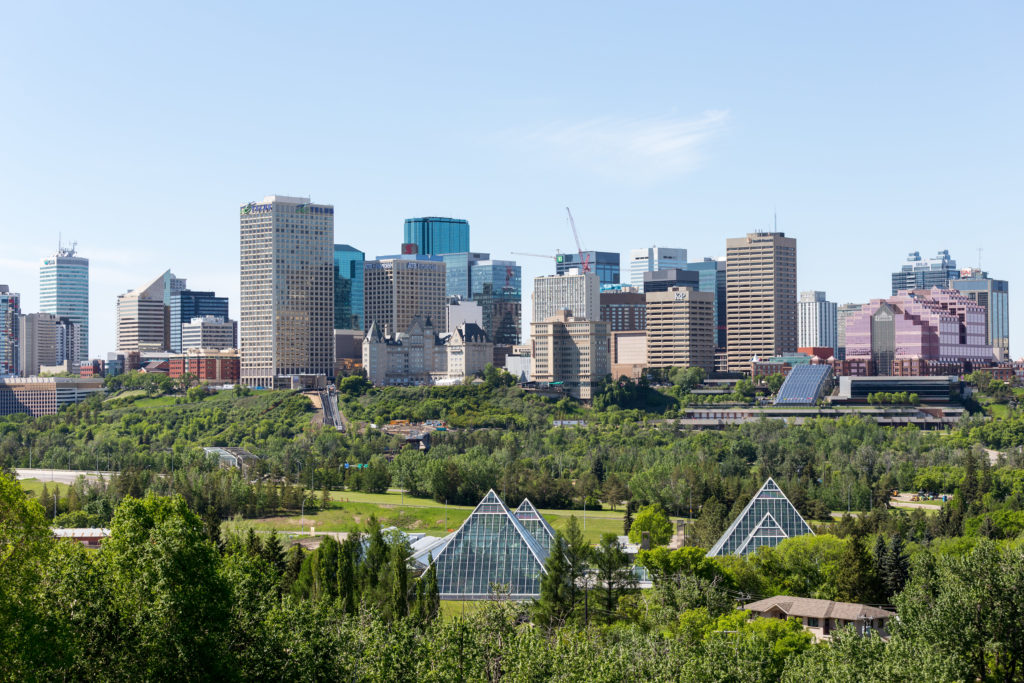
Mike Mellross spent 16 years working on municipal climate and energy issues for the City of Edmonton (pictured) and the City of St. Albert. (Photo: Mack Male via Flickr)
Throughout the 16 years that Mike Mellross worked on climate and energy issues with the City of Edmonton and the City of St. Albert, residents regularly asked him one question: “What’s the most impactful thing I can do when it comes to climate change?”
“Both the way the question was asked and the way I answered it changed,” says Mellross, who is now program director of Alberta Ecotrust’s Climate Innovation Fund, a program that aims to accelerate urban emissions reductions in Calgary and Edmonton. “In the early 2000s, people would want a response like, ‘Turn off your lights, change out your furnace, take a bike to work.’ Like if you just reduce your carbon footprint, the entire world will be saved. It was that kind of philosophy.”
During his time in municipal politics, he saw the conversation around climate and energy change significantly.
“Climate change and the need to transition to a low-carbon future are now integrated into many policy conversations, whereas back when I first started, it was very much off the side of people’s desks. And with that change in conversation has come more sophisticated policies and programming that’s more action-oriented.”
The best way for you to get politically active is through your municipality. At the local level, you will never be closer to the decision-making.
There’s also a greater understanding that individual actions alone won’t stop climate change. We need big, systemic changes and politicians to advocate for them. So, in the later stages of his municipal career, Mellross had a different answer to that often-asked question:
“Show up and speak up.”
“The best way for you to get politically active is through your municipality,” he says. “At the local level, you will never be closer to the decision-making. You cannot get that audience with the province or the federal government, but you can show up at a council meeting and you can say your five minutes. And you can also talk to your councillors and your mayor on a regular basis.”
The question, he says, is no longer about the individual actions residents can take. “It’s about how we change our institutions and whether we have the right policy frameworks. And if you want to be part of that conversation, the cities will be very open to engaging with you.”
Advice for residents who want to work with their local governments
Mellross recalls how early in his career, he would bring agenda items that he considered “transformative” to council meetings. “And I’d speak to an empty room. There would be nobody else registered to speak to these items.”
This, he says, sends a signal to councillors, whose job it is to represent their constituents’ interests. If constituents don’t voice their opinions on an issue, councillors will conclude that they don’t have to worry about it.
The best way for residents to voice their opinions, he says, is to come to a council meeting and speak.
It might be a daunting prospect for those who’ve never presented to council or aren’t sure how these meetings work. Mellross advises residents start by watching council meetings, most of which are now streamed online.
“Watch for agenda items that are meaningful to you. Agenda items about green buildings and climate change, walkability, 15-minute communities — all those things come up a lot. That will give you some familiarity with the process. Then I think you’ll be emboldened to register to speak.”
He adds that speeches to council, also known as deputations, don’t have to be lengthy or complex. “It’s just five minutes. Tell them, ‘This is my life, this how this [issue] impacts me and this is what I think you should do and how you should think about it.’”
When you have an opportunity to show up and speak up, you have to take it. Then it’s not just a one-sided story. The entire narrative is being told.
Writing to your mayor and council or meeting with them in person can also be effective — more so, Mellross says, than going to an administration-led engagement session. He insists that mayor and councillors are accessible. “It’s not like they’re far-away people, sitting on pedestals.”
He notes that it’s important for residents to understand that “there’s a lot going on behind the scenes for council and the mayor. There are industry lobbyists, people who don’t want you to move forward with [a new] approach when they’re invested in business-as-usual. And they’re paid to do that — it’s highly resourced. If council only hears that messaging, they get a very imbalanced view of the issue.”
It’s yet another reason why residents can make a big difference by speaking to their mayor and council: voicing your opinion brings balance to an otherwise uneven conversation.
“So, when you have an opportunity to show up and speak up, you have to take it,” Mellross concludes. “Then it’s not just a one-sided story. The entire narrative is being told.”
Tips for speaking at a council meeting
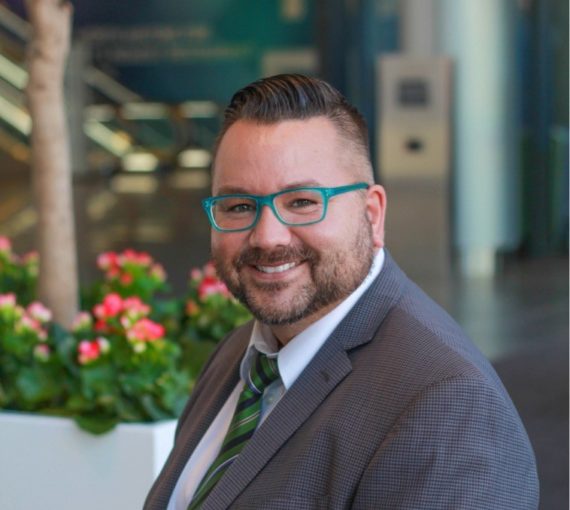
Courtesy of Mike Mellross, former City of Edmonton staffer and current program director at Alberta Ecotrust
- Watch council meeting livestreams to familiarize yourself with the meeting process.
- Make sure you’re well within your allotted time (usually five minutes). “Don’t work to the last second,” Mellross advises. “When you’re actually saying it, it sometimes takes a bit longer.”
- Practise your speech and write it down. “Even to this day, when I go speak to council, I don’t talk off the top of my head. I write it down and I read it.”
- Keep your message clear. Don’t use overly complicated language.
- Send in a written submission before you speak, and copy all council members on your email.
- If you can work in a personal story, do so. Stories can have a great impact on your audience.
This story is part of Your Voice at the Table: a Guide to Mobilizing Local Government Climate Action.

